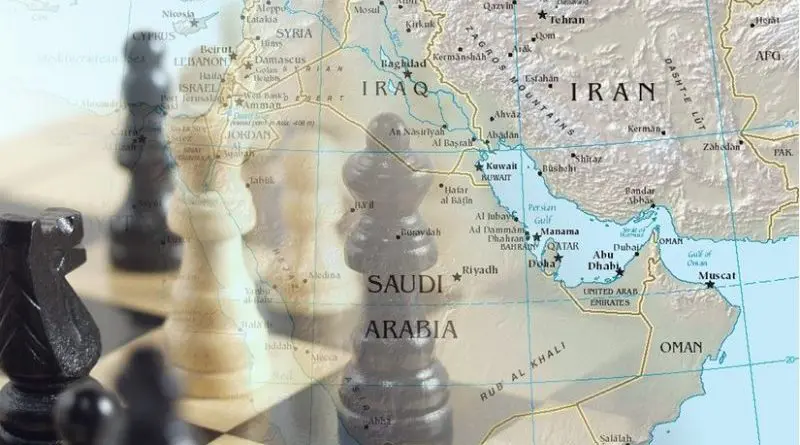Middle East Vulnerable To Being Trampled By Rival Powers – OpEd
By Arab News
By Maria Dubovikova*
“A Russian wife equals a Russian spy.” This could be a phrase taken from the dialogue of an American Cold War era novel, but actually it is a genuine phrase that was uttered a few days ago at a conference in the US. And this phrase could serve as the perfect illustration of the current status of bilateral relations between the US and Russia.
Having started to deteriorate in 2014, the relationship between the two major powers is getting worse every year. The sanctions war, diplomatic scandals and media wars have all led to a multi-dimensional confrontation that is getting entirely out of control.
Worsening relations between Russia and the US are being fueled by the media on both sides. However, in the US the media is a bit more successful because it is more effective in influencing people. One can argue though that the current crisis has made ordinary Russians more informed about the US political system than any ordinary American citizen is about Russia’s geographical location.
Russians are interested in knowing about their rivals, while Americans prefer just to demonize and create fear. It is even clear in terms of science. In Russia, there are many experts on American policies and studies of the US are growing, attracting young people. However, American specialists are very few and research on Russia is limited.
Thus Russia knows the US well — about its weaknesses, policies and approaches — while Russia remains a big question mark for the US, enveloped by fake perceptions, demonization and deep phobias.
But this is not a new Cold War. All that is happening between the two powers now has nothing to do with a clash between a prosperous democracy and its values against bloody dictatorship, it is not about a clash of ideas and doctrines — it is pure geopolitics.
The Middle East is transforming into the battlefield of Moscow and Washington, as a new world order is emerging amid a struggle of two paradigms: Russian and American.
One particular trait of this confrontation is that the result is mostly predetermined not by the capacities of the rival states, but by the choices made by the minor players who are the subject of this confrontation.
American policy toward the Middle East has already left a bloody print on the sand as well as growing chaos and instability. With Donald Trump’s arrival into power, the US position has become unpredictable.
The Russian position on Arab revolutions has not been the subject of widespread public interest, except in the case of Syria. Having abstained on Libya, Russia embarked on a vision that distinguishes between the interests of the Syrian regime in actual reforms and the prevention of Western intervention in the country, which would have disastrous consequences not only for the unity of Syria but also for the stability and security of the region. In Syria, the consequences would be far more disastrous than the West’s mission in Libya.
The US trying to kick Russia out of the region complicates the situation and threatens stability, but America is acting with only one purpose: Not to let Russia take the lead.
Thus Syria is turning into a battleground between the Russian bear and the American eagle. The entire Arab region, including Syria’s neighbors, will be affected. It is like the African proverb: “When two elephants fight, it is the grass that suffers most.”
Confrontation between Moscow and Washington makes the world extremely unsafe, but their bilateral ties drastically lack a positive agenda and grounds for a sustainable dialogue. From the deteriorating American-Russian confrontation, only terrorist groups and organizations are benefiting. A recent exchange of classified information between the CIA and their Russian counterparts reportedly helped Russia prevent a terrorist act on its territory, and that raised hopes for a stabilization of ties. However, such positive moves are rare exceptions to the regular rules.
• Maria Dubovikova is a prominent political commentator, researcher and expert on Middle East affairs. She is president of the Moscow-based International Middle Eastern Studies Club (IMESClub). Twitter: @politblogme

